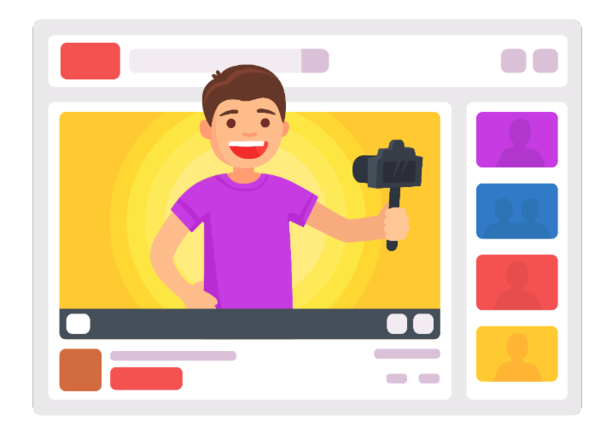
‘YouTuber’ is a very popular dream job among children these days. According to a survey by the Korea Association of Vocation in 2019, being a YouTuber ranked third in the desired jobs of elementary school students. Recently, there have also been many kids-themed YouTube channels where parents feature their children in the videos. They are making various content, such as making the children play a variety of games, review toys, or do ‘mukbang’ However, is making children YouTube’s young stars really beneficial for them? Protection for children is currently overshadowed by profitability, while there is a lack of enough legal limitations. The production of making videos featuring kids that violates their rights should be stopped.
First, YouTube channels featuring minors can lead to child abuse. ‘Boram Tube,’ which had more than 30 million subscribers, was an unfortunate example. ‘Save the Children,’ a humanitarian aid organization for children, accused two operators of Boram Tube of child abuse in 2017. It took issue with some videos that made a five-year-old child drive on a real road in a toy car or that set up a situation in which the child stole money from her father's wallet. The court found those actions to be consistent with child abuse and ordered the parents to get counseling from a child protection agency. The contents become more and more stimulating under YouTube’s profit system, where revenue increases with the number of views and subscribers. In addition to Boram Tube, videos of other channels that make children eat foods that are difficult even for adults to eat or make them put on makeup had also been controversial. Second, YouTube channels featuring minors can violate children’s portrait rights. Most of the children on the channels are below elementary school age. It is hard for them to understand the situation where they are becoming known to many people. Many parents are making their children appear in videos without knowing how their children in the future will respond to the fact that they had been exposed to many people in the past. Parents are indeed the guardians and legal representatives of their children, but it cannot justify to 'own' the portrait rights of them. Third, YouTube channels featuring minors make play as a ‘labor.’ As the scale of the channel grows, it goes beyond just a personal hobby and becomes a family company. In the process, as making video clips becomes parents’ works, a child's play can also become ‘labor.’ Play that has become work are no longer pleasant or beneficial to children. Under Article 64 of the Labor Standards Act, those under the age of 15 are not allowed to work. Although the Popular Culture and Arts Industry Development Act recognizes the labor of entertainers under the age of 15, it places a limit on working hours. On the other hand, young YouTubers are in a blind spot of the law. This is because most of the videos are filmed at home, which is hard to monitor, and the children are also not classified as entertainers.
As such, making children YouTubers have many problems. It is obviously child abuse to produce provocative content aimed at profitability using children whose rational judgment is immature. Parents should reflect on themselves about making their children become commercialized. Don't forget the truth that real play is done in real life, not on camera.

